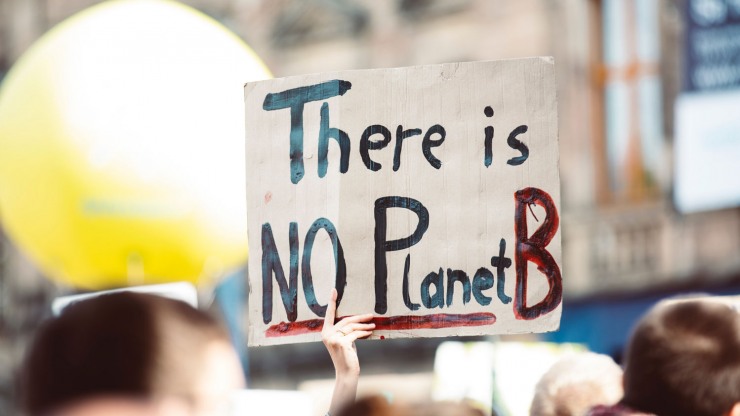A report released by Brown's Climate Solutions Lab urged the implementation of a carbon tax and a prohibition on fossil-fuel infrastructure spending, among other recommendations.
PROVIDENCE, R.I. [Brown University] - A report issued by Brown University's Climate Solutions Lab urges federal leaders to move climate change to the top of their domestic and foreign policy agendas in 2021.
The comprehensive report, "Presidential Climate Action on Day One: A Foreign Policy Guide for the Next U.S. President," issued a sweeping set of recommended actions, both domestic and international, to address the impacts of climate change - from prohibiting federal spending on new fossil fuel infrastructure to working toward decarbonizing the aviation and shipping industries.
The report was released on Thursday, Oct. 8, by the Climate Solutions Lab at Brown's Watson Institute for International and Public Affairs. The lab was established in 2020 as part of a University-wide Climate Solutions Initiative aimed at confronting climate inaction at the campus, city, state and global levels.
Co-author Jeff D. Colgan, director of the Climate Solutions Lab and an associate professor of political science, said the report provides federal leaders with a practical, actionable 10-step process for confronting what many believe is the century's defining global challenge. According to the United Nations Intergovernmental Panel on Climate Change, the world must reduce its carbon emissions by 50% by 2030 to avoid further climate damages.
"Despite the doom and gloom you sometimes hear, the U.S. federal government is not helpless in its ability to address climate change," Colgan said. "There are many actions that the executive branch can take, even without help from Congress."
While it does not presume a specific outcome in next month's presidential election, Colgan said the report is directed primarily at former Vice President Joe Biden, the Democratic presidential nominee, because he has issued the most assertive climate change plan in U.S. history. The report's recommendations build on the Biden campaign's climate commitments, proposing even more aggressive actions that can in some cases be acted upon via executive order on day one of the next presidential term.
Regardless of who wins the election, Colgan said: "The report contains recommendations that Democrats and Republicans can work together on - such as a climate club that commits to delivering a carbon emissions tax, which has gained support on both sides of the political aisle."
Colgan and his fellow Climate Solutions Lab scholars sent the report directly to Congressional lawmakers on both sides of the aisle, to the Biden campaign's climate policy advisers and to non-partisan public policy think tanks such as the Brookings Institution, the American Enterprise Institute and the Niskanen Center.
He co-authored the report with Fred Shaia, a Ph.D. student and presidential fellow in the Department of Political Science, after extensive study and discussion with prominent climate change experts at Brown and across the country.
Some domestic recommendations include:
- directing the U.S. Federal Reserve to address systemic financial risks created by climate change;
- declaring a national climate emergency, which would permit the president to use military funding to secure and decarbonize the electricity grid, accelerate the expansion of clean energy technologies and issue loan guarantees to clean energy developers and utilities; and
- mitigating other climate risks to the domestic financial system.
International recommendations, among others, include:
- creating an international "Climate Club" of countries that have collectively committed to reducing emissions, penalizing non-participants through carbon tariffs;
- launching a new partnership with the world's 10 leading democracies and making climate change a core priority; and
- protecting the Amazon rainforest by working with leaders in Brazil and the international community.
"Domestic policy and foreign policy must work together, hand-in-glove," Colgan said. "Each policy is weaker without the other."







